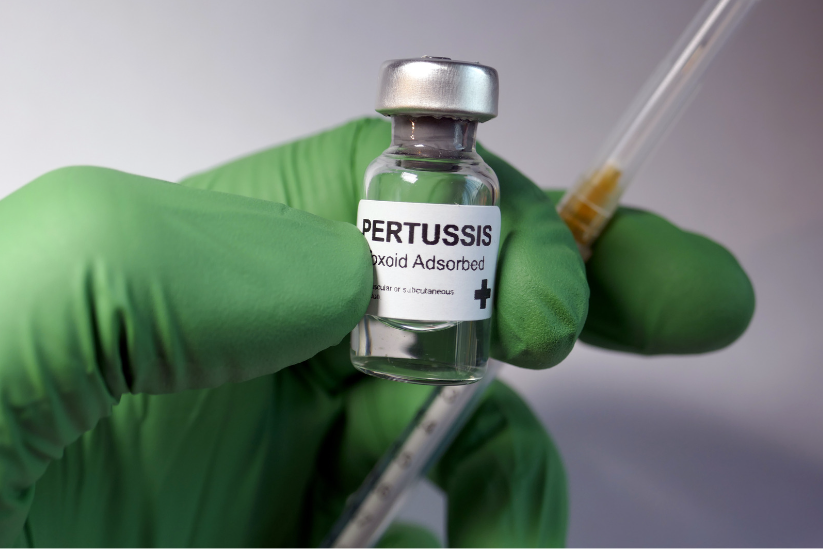What is Pertussis?
Pertussis, also known as whooping cough, is a very contagious, vaccine-preventable respiratory illness. Pertussis is caused by a type of bacteria called Bordetella pertussis. The bacteria attach to the cilia (tiny, hair-like extensions) that line part of the upper respiratory system. The bacteria release toxins (poisons), which damage the cilia and cause airways to swell.
The disease is only found in humans. It may begin like a common cold, but unlike a cold, the coughing can last for weeks or months. Early treatment may make the infection less severe.
Symptoms
It usually takes 5 to 10 days for symptoms to appear after exposure to the bacteria that cause whooping cough. Sometimes, symptoms don't develop for as long as 3 weeks.
Pertussis appears similar to a common cold early on. Health care providers often don't suspect or diagnose it until more severe symptoms appear.
Early symptoms can last for 1 to 2 weeks and usually include:
- Runny or stuffed-up nose
- Low-grade fever (less than 100.4 F)
- Mild, occasional cough
Whooping cough affects people of all ages.
Babies younger than 1 year are at greatest risk for getting pertussis and having severe complications. About 1 in 3 babies younger than 1 year old who get whooping cough need care in the hospital. The younger the baby, the more likely they'll need hospital treatment. Many babies with pertussis don't cough at all. Instead, they may have apnea (life-threatening pauses in breathing). Apnea may cause cyanosis (to turn blue), or they may struggle to breathe. For some babies, pertussis may seem like a common cold for the entire illness, not just at the beginning.
Vaccine recommendations
- Pertussis affects people of all ages. CDC recommends vaccination for babies, children, preteens, pregnant women and adults as the best way to protect against infection.
- Complications are usually less severe in those who received pertussis vaccines.
- These vaccines work well, but protection fades over time.
- Talk to a vaccine provider if you have questions.
There are two types of combination vaccines that include protection against pertussis:
- DTaP
- Tdap
The letter "T" in DTaP and Tdap shows they also help protect against tetanus. The letter "D/d" in DTaP and Tdap shows they also help protect against diphtheria. Babies and children younger than 7 years old receive DTaP, while older children and adults receive Tdap.
Babies need three shots of DTaP to build up high levels of protection against pertussis. CDC recommends these shots at the following ages:
- 2 months
- 4 months
- 6 months
Children need two shots of DTaP at the following ages to maintain that protection through early childhood:
- 15 through 18 months
- 4 through 6 years
Preteens should get one shot of Tdap between ages 11 and 12 to boost their immunity.
Teens who didn’t get Tdap as a preteen should get one shot the next time they visit their health care provider.
Pregnant women should get one shot of Tdap during every pregnancy during weeks 27 through 36.
Adults - The CDC recommends a single dose of Tdap for adults who've never received Tdap.
Contact a Health Care Provider
See a health care provider if you or your child are coughing violently. Worsening symptoms require immediate medical attention. Call your provider if you or your child has persistent or worsening symptoms, such as wheezing or difficulty breathing or talking, especially if you or they might be at higher risk of developing severe disease.
Treatment
Treating whooping cough early with antibiotics is crucial because it can reduce the severity of the illness and help prevent the spread of the bacteria to others. Take the antibiotics exactly as prescribed and stay home and away from others until antibiotics are completed.
Recovery
Recovery can be slow, with the cough becoming milder and less common over time.
Coughing fits may stop for a while but can return with other respiratory infections. Coughing fits can return many months after the whooping cough illness started.
Practicing good respiratory hygiene also helps to reduce spread.

